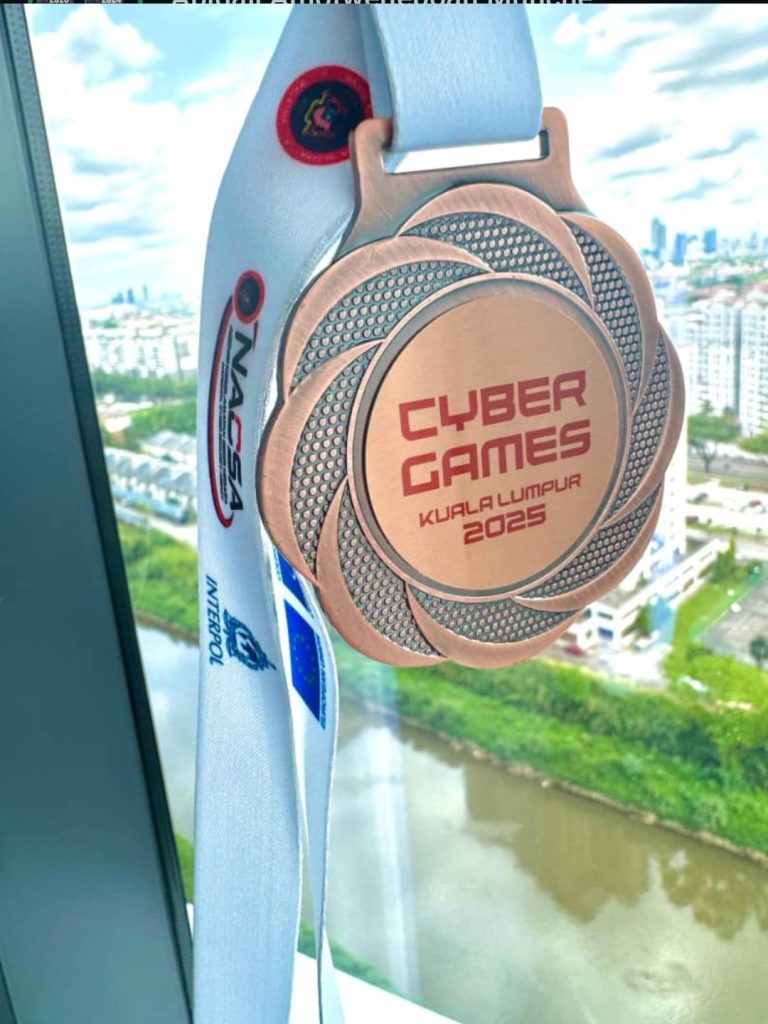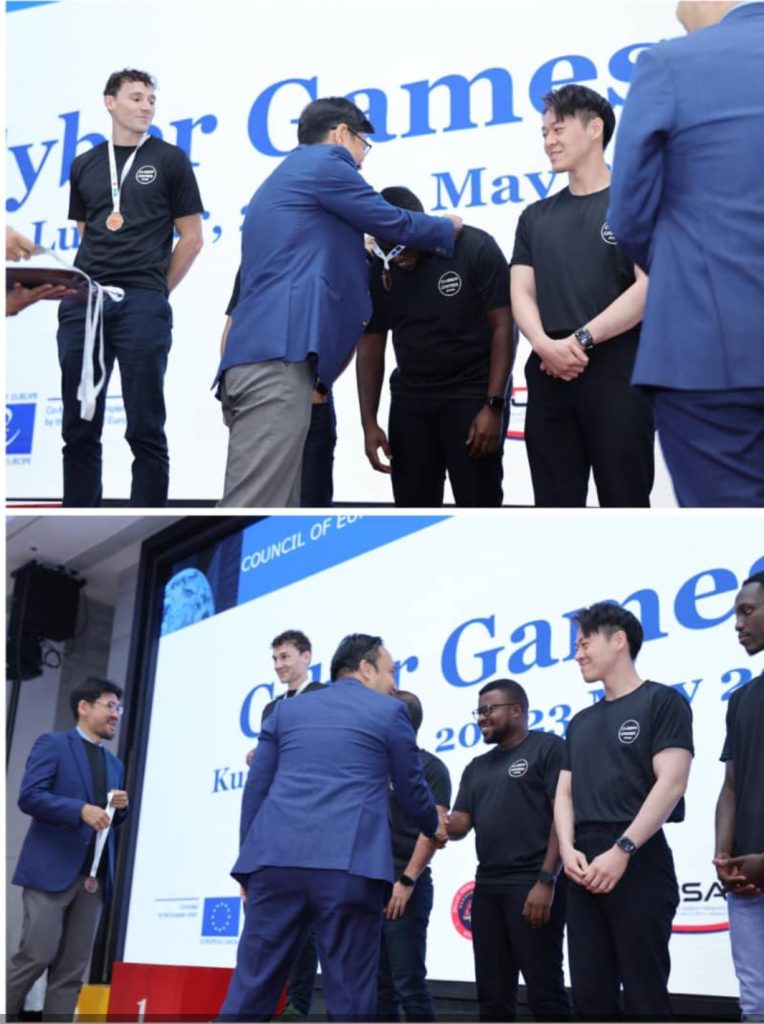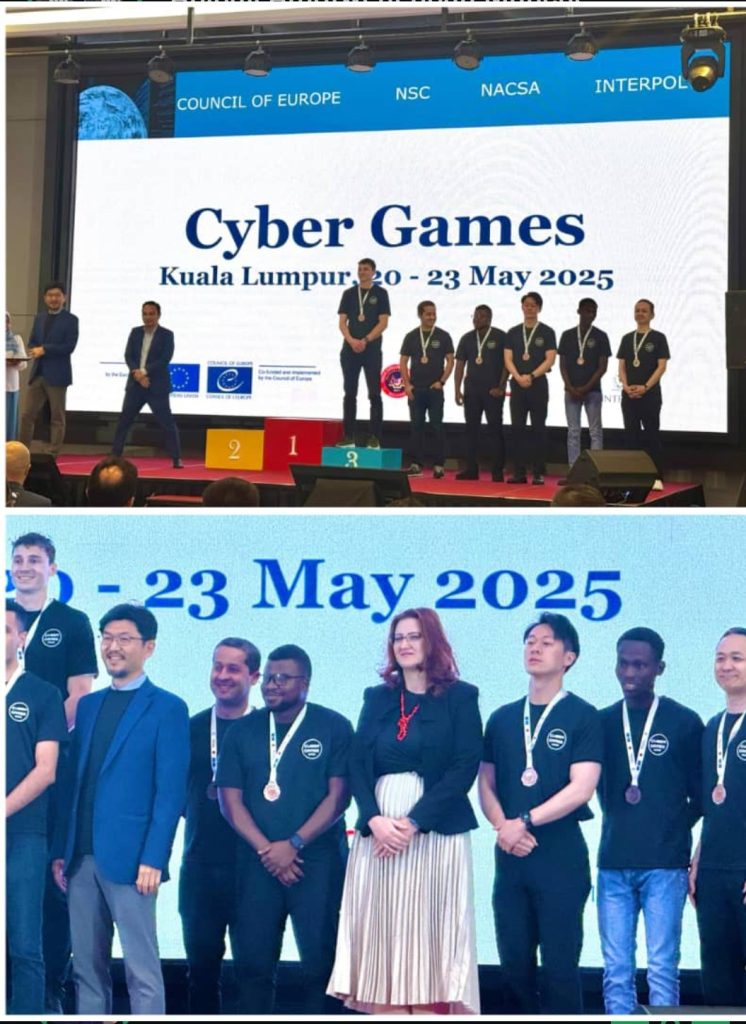A Ghanaian police officer has earned international acclaim after securing a silver medal at the 2025 INTERPOL Digital Security Challenge, one of the world’s most prestigious cybercrime competitions for law enforcement personnel.
Corporal Dunstan Guba of the Ghana Police Service finished third overall in the high-intensity cybersecurity challenge, held at INTERPOL’s Asia-Pacific headquarters in Kuala Lumpur, Malaysia, from May 27 to 30. The event drew participation from over 100 top-tier cybercrime specialists representing more than 60 countries, including experts from the United States, Japan, the United Kingdom, Germany, and Australia.

“It was an incredible honour to represent Ghana and showcase our capability in cybercrime investigation and defence on the international stage,” Corporal Guba posted on his official social media after the event.
“This recognition means a lot not just to me, but to my country and the Ghana Police Service.”
World-Class Cyber Defence Test
The three-day, non-stop “Capture the Flag” (CTF) event tested participants’ expertise in combating advanced digital threats. Challenges included realistic simulations of ransomware attacks, data breaches, dark web investigations, and forensic analysis. Competitors were required to demonstrate both offensive and defensive cybersecurity tactics, in line with current global threat landscapes.
INTERPOL officials noted that the 2025 challenge reflected real-life cybercrime operations increasingly targeting national infrastructure and critical services—concerns that have been front and centre globally since incidents like the 2021 Colonial Pipeline attack in the U.S., and more recently, cyber intrusions affecting hospitals and election systems in Europe.
“Cybercrime knows no borders. That’s why law enforcement must collaborate, train, and test their capabilities across nations,” said Craig Jones, Director of Cybercrime at INTERPOL, in remarks during the event’s closing ceremony.
Corporal Guba’s podium finish underscores Ghana’s rising profile in the global cybersecurity domain. His success is part of a broader effort by the Ghana Police Service and national stakeholders to strengthen digital crime-fighting capabilities amid increasing cyber threats targeting financial institutions, e-commerce, and government systems.

Ghana’s cyber preparedness has benefitted from international partnerships such as the Council of Europe’s GLACY+ initiative (Global Action on Cybercrime Extended), which offers training, technical support, and legal harmonization for countries tackling cybercrime.
Through this initiative, Ghanaian officers have participated in multiple international training programmes and simulation exercises.
In 2024, Ghanaian officers also played a vital role in a multinational team that earned third place at the previous INTERPOL challenge in Cebu, Philippines.
Building a Resilient Cyber Future
Guba’s accomplishment aligns with Ghana’s National Cybersecurity Policy and Strategy, which prioritizes the development of human capital to counter digital threats. Ghana has also enhanced its cyber legal framework and operational capacity through the Cyber Security Authority, which works closely with both public and private sector institutions.
Cybercrime is estimated to cost the global economy over $10.5 trillion annually by 2025, according to a report by Cybersecurity Ventures. As such, nations like Ghana are investing in cyber resilience not only to protect their own infrastructure but to contribute to international cyber stability.
The INTERPOL Digital Security Challenge continues to serve as a critical platform for law enforcement agencies to share intelligence, sharpen practical skills, and coordinate strategies in an increasingly interconnected digital world.
With Ghana’s consistent presence and rising performance in these competitions, the country is proving itself not just as a regional leader but as a credible player in global cyber defense architecture.
Corporal Guba’s silver-medal finish is a beacon of the talent and potential within Ghana’s security services, and a call to further invest in the digital warriors protecting our national and global future.
